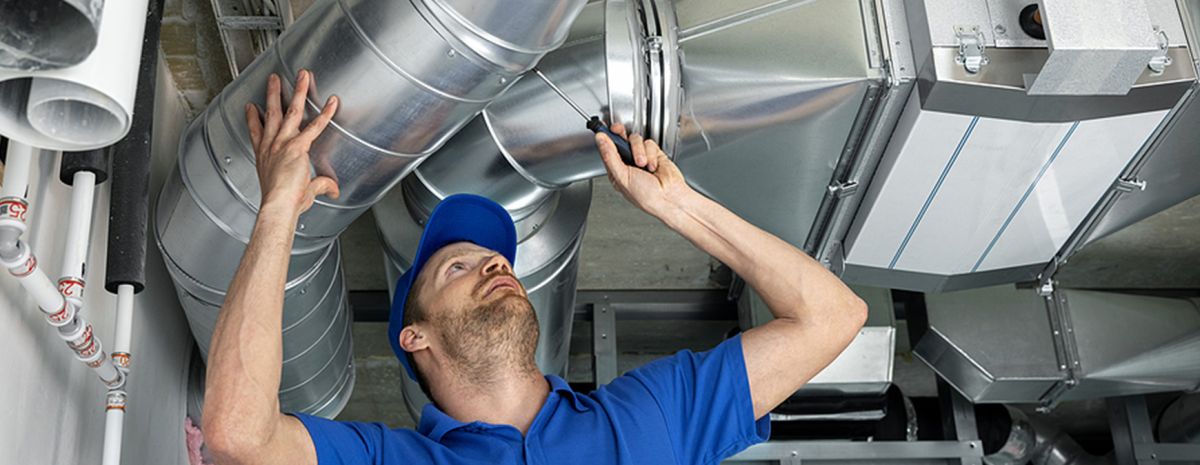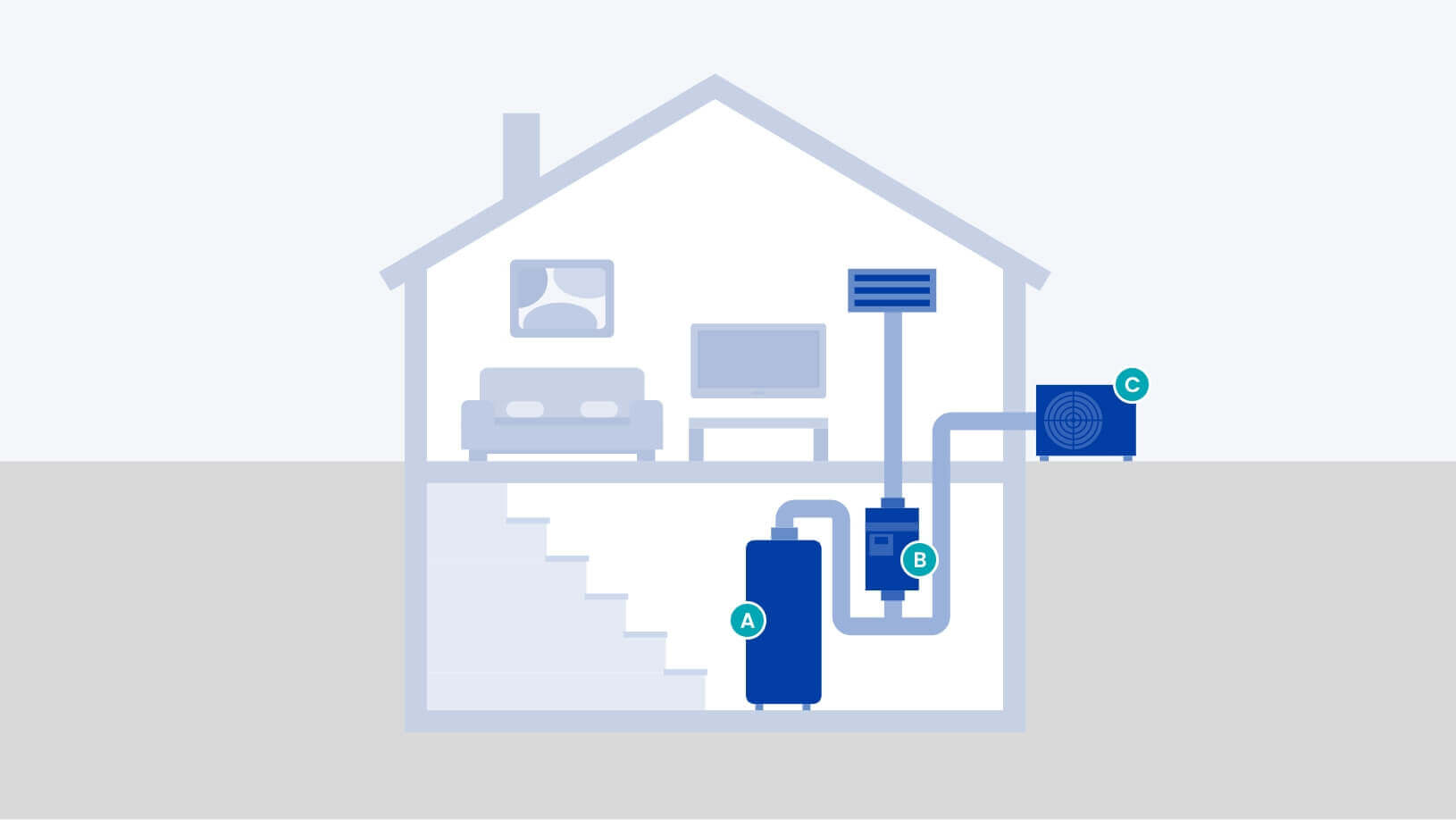See how HVAC experts create welcoming indoor environments with precision
Wiki Article
Understanding the Different Sorts Of A/c System for Optimum Efficiency
Recognizing the various kinds of HVAC systems is important for homeowners aiming to boost convenience and energy efficiency. Air conditioning systems supply uniform temperature control, while ductless mini-split systems supply versatility. Heatpump deliver efficient year-round climate administration. For smaller spaces, home window and portable a/c act as practical services. Geothermal systems use consistent underground temperature levels for sustainable cooling and heating. Each alternative holds distinct advantages, prompting a more detailed assessment of which might fit individual requirements best.Central Air Solutions
Although numerous home owners look for ways to improve interior convenience, comprehending main air conditioning systems is important for reliable environment control. Central air runs by distributing trendy air via a system of ducts, dispersing it equally throughout the home. This type of system consists of numerous crucial components, including an outside compressor, an indoor evaporator coil, and a network of ductwork.The compressor cools down refrigerant, which after that takes in warmth from interior air as it passes via the evaporator coil. This cooled air is pressed through the ducts and into living spaces, ensuring a consistent temperature. Central air systems are understood for their effectiveness, frequently using programmable thermostats to maximize energy use. Normal upkeep, such as filter changes and system checks, is important to guarantee durability and performance. Understanding these parts helps house owners make educated decisions pertaining to installment and upkeep, eventually improving comfort and power efficiency in their homes.

Ductless Mini-Split Systems
Ductless mini-split systems use an adaptable option to typical air conditioning, accommodating property owners looking for efficient environment control without the requirement for substantial ductwork. These systems include an outside compressor unit and several interior air-handling units, permitting for targeted air conditioning and home heating in specific areas or areas. This zoning capacity improves convenience by enabling customers to readjust temperatures based on individual choices, eventually causing energy financial savings.Installation is normally simpler and less intrusive compared to ducted systems, which can be valuable for older homes or areas with restricted architectural adjustments. In addition, ductless mini-split systems often include energy-efficient modern technologies, such as inverter-driven compressors, which maximize energy intake based upon demand. Their compact style also enables numerous positioning options, making them suitable for tight or unique spaces. Therefore, ductless mini-split systems have actually gained appeal among house owners seeking contemporary, effective heating and cooling remedies.
Warmth Pumps
Heatpump stand for an energy-efficient and versatile alternative for both home heating and cooling down property spaces. These systems run by moving heat instead of generating it, making them specifically effective in modest environments. Throughout warmer months, heatpump remove warm from inside your home and launch it outside, providing air conditioning. On the other hand, in wintertime, they reverse this procedure, drawing warm from the outside air or ground to warm up the interior.There are two main kinds of heatpump: air-source and ground-source (or geothermal) Air-source heatpump are a lot more typical because of their easier installation and reduced first cost, while ground-source designs boast greater effectiveness and security in performance. In addition, heat pumps can especially decrease power costs and carbon impacts when compared to conventional home heating methods, making them an eco-friendly selection. Overall, heatpump stand as a compelling remedy for property owners seeking reliable environment control throughout the year.
Window and Portable Air Conditioners

On the various other hand, mobile a/c unit offer adaptability, as they can be conveniently relocated from space to area. These devices usually call for an airing vent set to exhaust warm air via a home window, yet they supply a convenient choice for short-lived cooling requirements.
Both kinds of a/c are appropriate for renters and those looking for to stay clear of considerable installation procedures. Customers must consider aspects such as BTU capacity, power performance ratings, and sound levels when selecting an unit to assure peak performance for their certain area and cooling requirements.
Geothermal Heating and Air Conditioning Equipments
As energy performance becomes significantly vital, geothermal heating & cooling systems have gotten popularity for their lasting approach to environment control. These systems use the secure temperature levels discovered underground to give home heating in winter season and cooling in summertime. By using the earth's natural thermal energy, geothermal systems significantly reduce dependence on nonrenewable fuel sources and lower energy costs.
Geothermal systems normally require less upkeep compared to standard A/c systems, resulting in lasting financial savings. With enhancing recognition of environment adjustment, these systems stand for a forward-thinking remedy for those looking for reliable and eco-friendly heating and cooling down alternatives
Regularly Asked Questions
Exactly how Typically Should I Service My Heating And Cooling System?
Cooling and heating systems ought to ideally be serviced twice a year, as soon as in the springtime and as soon as in the autumn. Routine upkeep assists ensure effectiveness, lengthens life-span, and protects against costly malfunctions throughout optimal usage periods.What Size A/c System Do I Need for My Home?
Figuring out the ideal dimension for a HVAC system needs computing the home's square video footage, insulation quality, and climate. An expert assessment assurances optimal efficiency, convenience, and power financial savings tailored to the certain needs of the house.Can I Install an A/c System Myself?
Mounting a heating and cooling system independently is possible, but it needs technical knowledge and skills. Blunders can bring about inadequacy or safety hazards, so seeking advice from a specialist is often advised to assure correct installment and compliance with laws.What Are the Indicators My Heating And Cooling System Needs Repair?
Signs that a HVAC system requires repair consist of unusual sounds, irregular temperature levels, boosted energy expenses, unpleasant odors, and constant biking. Motivate focus to these indications can prevent more damage and assurance top system efficiency.How Can I Improve My heating and cooling System's Energy Efficiency?
To enhance heating and cooling energy performance, one should routinely replace filters, seal air ducts, install a programmable thermostat, assurance proper insulation, and timetable routine maintenance checks. HVAC experts. These activities collectively improve performance while decreasing energy usage and costsCentral air conditioning systems offer uniform temperature control, while ductless mini-split systems offer versatility. Central air conditioning operates by circulating great air via a system of air ducts, distributing it uniformly throughout the home. Central air conditioning systems are understood for their efficiency, often using programmable thermostats to enhance power usage. Ductless mini-split systems supply a versatile choice to check here typical central air conditioning, catering to house owners looking for effective climate control without the requirement for substantial ductwork. Geothermal systems generally require less upkeep compared to traditional A/c systems, resulting in long-lasting savings.
Report this wiki page